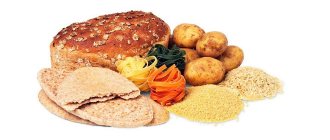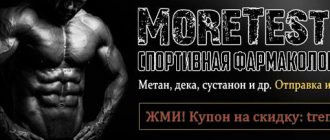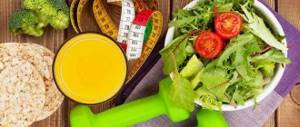Fast carbohydrates when gaining weight
Simple or fast carbohydrates belong to the group of monomolecular monosaccharides.
Among them are:
- maltose (sugars found in malt and honey);
- lactose (found in milk);
- sucrose (is the main component of baked goods and sweets);
- fructose (especially useful for diabetics).
Simple carbohydrates perform the following functions:
- activate the synthesis of enzymes and hormones in the body, at the same time controlling metabolism;
- stimulate brain function;
- fight depression and stress;
- replenish glycogen levels;
- build a cell framework;
- neutralize toxins.
Fast carbohydrate foods include:
- ice cream;
- white sugar;
- carrot;
- confitures;
- vegetables rich in starch;
- honey;
- juices;
- carbonated drinks with sugar;
- sweet fruits;
- flour and baked goods;
- beet;
- mayonnaise;
- beans;
- ketchup;
- lentils;
- watermelon;
- yoghurts with sugar;
- alcohol.
Fast carbohydrates, list of products.
If there is an excess of fast carbohydrates in the body:
- caries develops;
- there is a tendency to obesity;
- followed by gastrointestinal diseases;
- metabolic disorders occur;
- manifested: cellulite, swelling, dermatitis;
- blood pressure surges occur.
Fast carbohydrates are foods that help quickly recreate the daily glycogen requirement for muscles. Such substances perfectly supply the body with energy and allow it to fully recover after intense training. They are instantly absorbed and processed. Muscles are fast and slow twitch fibers that contain sarcomeres and myofibrils. Their growth occurs not during training, but after it.
When exercising in the gym, muscles:
- partially torn;
- tense up;
- get injured.
Muscle growth will be observed during the recovery process. In this case, the injured cells will be replaced by numerous healthy ones. For more visible results, months of active sports will be required.
Constant physical exercise guarantees stable muscle growth. This increase is also called muscle hypertrophy. This process is possible only with regular increase in loads and overcoming the usual barriers.
Hypertrophy or muscle growth is promoted by completely safe:
- nutrition;
- recovery;
- testosterone production stimulants;
- workout.
The table below shows the time it takes for food to be digested:
| Food | Absorption time |
| Pork | Up to 6 hours |
| Water | Instantly |
| Lamb and beef | 4 hours |
| Juices from vegetables and fruits | Up to 20 min |
| Nuts and seeds | 3 hours |
| Vegetable broth | From 10 min |
| Turkey and chicken | Up to 3 hours |
| Berries and fruits with high water content | Up to 20 min |
| Dairy and fermented milk | 2 hours |
| Citrus and grapes | 30 min |
| Beans | 2 hours |
| Salads with vegetables without oil | 40 min |
| Cereal porridge | 2 hours |
| Bananas and peaches | 40 min |
| Jerusalem artichoke and potatoes | Up to 2 hours |
| Pears and apples | 35 min |
| Fish | 1 hour |
| Corn and zucchini | Up to 50 min |
| Vegetable and butter salads | Up to 1 hour |
| Eggs | 1 hour |
| Cabbage | From 40 min |
For lean ectomorphs, carbohydrate foods should make up more than 50% of the daily food intake.
But of these nutrients, it is better for people with a similar physique to prefer natural or complex (slow), for example:
- lentils;
- potato;
- rice;
- vegetables;
- oatmeal;
- durum wheat pasta;
- beans.
Fast carbohydrates will instantly penetrate the blood and cause fatigue.
These include:
- jam;
- sugar;
- bakery;
- candies.
Ectomorphs should not get too carried away with these foods with a high glycemic index. Fast carbohydrates are foods that increase muscle mass by stretching the body's cells. Such food recharges athletes and prepares them for an energetic start to training. It also enhances the results of physical exercise. Excess glucose after heavy exercise will not be stored in fat. It will turn into glycogen, which will directly go to the energy storage of the liver.
People with a normal physique or mesomorphs, on the contrary, are even recommended to get carried away with sweets and baked goods to increase muscle mass. Carbohydrates in their nutritional ratio should be 40-50%.
Complex carbohydrates or foods with the lowest glycemic index are most suitable for full endomorphs:
- cucumbers;
- salads;
- tomatoes;
- broccoli.
Simple carbohydrates should still become enemies for people with slow metabolism.
Products containing these substances are:
- candies;
- sweet carbonated drinks;
- cakes.
Endomorphs can eat vegetables containing starch, but with more restraint.
These include:
- corn;
- carrot;
- potato.
The molecular composition of simple carbohydrates contributes to their rapid digestibility and absorption. Such nutrients contain the smallest number of elements. Therefore, they decompose very quickly during an oxidation reaction. Carbohydrates begin to be converted into glucose within 30 minutes after they enter the body.
Types of carbohydrates[edit | edit code]
Types of carbohydrates Classification by digestibility
Carbohydrates are divided into:
- Simple carbohydrates or sugars: mono- and disaccharides
- Complex carbohydrates: oligo- and polysaccharides
- Indigestible, or fibrous, carbohydrates are defined as dietary fiber.
Sahara
There are two types of sugars: monosaccharides and disaccharides. Monosaccharides contain one sugar group, such as glucose, fructose or galactose. Disaccharides are formed by the residues of two monosaccharides and are represented, in particular, by sucrose (common table sugar) and lactose. Separately, we should mention the disaccharide isomaltulose, which is a slow carbohydrate and can serve as a harmless sugar substitute.
Complex carbohydrates
Polysaccharides are carbohydrates containing three or more molecules of simple carbohydrates. Polysaccharides include, in particular, dextrins, starches (amylopectin, amylose, inulin), glycogens and celluloses. Sources of polysaccharides are cereals, legumes, potatoes and other vegetables.
Read more:
Types of Carbohydrates - Food Sources
Metabolism of carbohydrates[edit | edit code]
Carbohydrate metabolism is represented by three types of processes:
- glycogenesis, that is, the synthesis of glycogen from glucose;
- gluconeogenesis, the process of formation in the liver and renal cortex (about 10%) - glucose, from amino acids, lactic acid, glycerol
- glycolysis, that is, the breakdown of glucose and other sugars to release the energy necessary for the body.
Carbohydrate metabolism is largely determined by blood glucose, that is, the presence of carbohydrates in the bloodstream. This in turn depends on the timing and nutritional composition of your last meal. In principle, the level of glucose, or sugar, in the blood is minimal in the early morning hours after a usual seven to nine hours of sleep, during which you did not maintain the level of glucose in the blood with new portions of “fuel”.
The body's own supply of energy in a state of post-absorption (fasting) is 75 percent due to glycolysis and 25 percent due to gluconeogenesis. Once you wake up, your body is in the best condition to use stored fat as an energy source. So the old advice of horseback riding early in the morning and on an empty stomach has lasting value.
Morning hours are the time of the most active natural production of catabolic hormones
. The highest nighttime concentration of somatropic hormone drops in the morning, and by 8-9 o'clock the catabolic hormone cortisol reaches its highest daily concentration.
Carbohydrates and insulin[edit | edit code]
Insulin is a hormone produced by the pancreas. Insulin surges are caused by an increase in blood glucose and amino acids. Insulin supports glucose metabolism as well as intermediary metabolism of fats and proteins. Insulin helps lower blood glucose levels, as well as transport and transport glucose and amino acids into muscle cells and other body tissues.
How to calculate your daily calorie intake?
To increase muscle mass, the following ratio of BJU is required - 35/30/55, that is:
- 35% should be proteins;
- 30% may be fat;
- carbohydrates in the daily diet should be 55%.
Further calculations are carried out using the Geor formula, namely:
- Body weight in kg is multiplied by 10.
- Height in cm is multiplied by 6.25.
- Age in city is multiplied by 5.
- The results of points 1 and 2 are added up, and then the number from step 3 is subtracted from the result.
- Men add 5 to the result, and women subtract 161 from it.
- The resulting number is multiplied by A, where A is a coefficient that indicates the physical level of human development:
- 1,2 – practically absent (no sports activities);
- 1,375 – weak (with 1 or 3 workouts in 7 days);
- 1,55 – average (3-4 trainings per week, 1 hour each);
- 1,7 – high (with daily training);
- 1,9 – hyperactive (with numerous sets every day).
Next, the resulting calories are converted into grams, given that 1 g of fat is 9 calories, and 1 g of carbohydrates or protein is 4 calories. So, for example, the result of 1300 is multiplied by 0.35 or 0.55, and then divided by 4 - the daily amount of protein or carbohydrates per g is obtained. Fats in g are calculated using a similar scheme, only divided by 9.
When can you eat fast carbohydrates without harming your figure?
Oddly enough, simple carbohydrates can sometimes even be beneficial for a bodybuilder. For example, shortly before training, if an athlete has not had time to eat, he can take a spoonful of honey or eat a banana. This will allow the body to get enough energy for an effective workout, and will not cause a feeling of heaviness.
If you have a sweet tooth and can’t imagine your life without sweets, then sometimes allow yourself to indulge in your favorite treat in the morning. It's better than putting up with it and then breaking down in the evening or at night. At least, when taking such carbohydrates in the morning, there is a high probability that they will be used by the body, and when taken in the evening, they will be stored in fat reserves.
Try to replace your favorite treats with other, less harmful, but no less tasty treats. So, for example, instead of a cream pie or cake, you can eat a cottage cheese cake, a baked apple or marshmallow.
A weight loss table will help you track the dynamics of your results.
By recording your results in it, you will see whether you are on the right track. To properly lose weight and work on your mistakes, nutritionists advise keeping a food and training diary, in which you must honestly record everything you ate and drank during the day.
If your weight stays the same, then by analyzing this diary you can see the reason: you indulged yourself in sweets, ate irregularly, or reduced the amount of water you drank. Then these errors will be easy to correct.
How much and what to eat
Carbohydrates are the main energy sources during strength training to gain muscle mass.
The following food characteristics are also important:
- appropriate time for appointment;
- optimal amount of water;
- harmonious combination of nutrients;
- calorie content;
- reception frequency.
Before training
Before starting physical activity, you need to eat 2 hours before.
Foods with complex carbohydrates should be preferred, for example:
- mixture with proteins and carbohydrates;
- fruits and vegetables;
- porridge;
- pasta.
Serving sizes before workouts can be normal, not too high in calories (300 kcal for the male population and 200 kcal for the female population).
After training
During recovery, immediately after exercise, you usually drink a protein shake. This is done in order to replenish glycogen reserves. 1.5 hours after training, have a hearty dinner.
List of foods for weight gain
The following foods will be important for gaining muscle mass:
- Proteins: pearl barley and buckwheat porridge; lean meat; millet; seafood; nuts and beans; all dairy; eggs.
- Fats: butter; fatty sea fish; milk fats.
- Carbohydrates: muesli; vegetables; rice; fruits; pumpkin; cereals; potato; beans; raisin; dates.
Fast carbohydrates are foods that restore athletic strength after active sports and trigger the muscle growth response during rest. The glycogen produced when consuming them replenishes its reserves. Simple carbohydrates also release more insulin than protein does, either on its own or from muscles. The latter, thanks to this phenomenon, are not destroyed.
Sample menu
For those who want to build muscle, the following sample menu is suitable.
Monday:
- 1st breakfast : oatmeal with nuts and apple.
- 2nd breakfast : chicken with vegetables and potatoes.
- Lunch : cottage cheese with banana.
- Afternoon snack : fish with vegetables and rice.
- Dinner : tuna with vegetable salad.
- Snack : fruit salad.
Tuesday:
- 1st breakfast : buckwheat porridge with milk and honey; nuts; orange.
- 2nd breakfast : veal baked with vegetables and boiled pasta.
- Lunch: kefir with whole grain bread.
- Afternoon snack : cottage cheese with kiwi and honey.
- Dinner : baked mackerel with vegetable salad.
- Snack : Peanut butter and yogurt with strawberries.
Wednesday:
- 1st breakfast: oatmeal with apple; nuts; banana.
- 2nd breakfast : lean veal with vegetables and potatoes.
- Lunch : omelet with black bread and an apple.
- Afternoon snack : milk smoothie with fruit.
- Dinner : turkey with rice.
- Snack : cottage cheese with jam.
Thursday:
- 1st breakfast : rice with milk and nuts, apple.
- 2nd breakfast : veal and vegetable soup.
- Lunch : kefir with whole grain bread.
- Afternoon snack : fruit salad.
- Dinner : turkey with baked potatoes.
- Snack : vegetable salad.
Friday:
- 1st breakfast : omelette with chicken fillet and vegetables.
- 2nd breakfast : lean veal with potatoes and banana.
- Lunch : cottage cheese with apple and jam.
- Afternoon snack: fruit smoothie.
- Dinner : vegetable and chicken stew.
- Snack : Peanut butter and yogurt with strawberries.
Saturday:
- 1st breakfast : oatmeal with banana and nuts.
- 2nd breakfast : potatoes with chicken and vegetables.
- Lunch : kefir with whole grain bread.
- Afternoon snack: cottage cheese with kiwi honey.
- Dinner : buckwheat porridge with baked mackerel and vegetable salad.
- Snack : fruit salad.
Sunday:
- 1st breakfast : omelette with chicken and vegetables.
- 2nd breakfast : veal with vegetables and apple.
- Lunch : cottage cheese with banana and jam.
- Afternoon snack: fruit smoothie.
- Dinner : rice with chicken and vegetables.
- Snack : vegetable salad.
Fast carbohydrates are foods that can instantly convert amino acids into building blocks for muscle growth. They must be eaten during the open anabolic window (in the first hour after training). Eating this way also promotes rapid muscle development.
How to cook meals
Sprouted wheat added to dishes will be a source of additional arginine and chromium. It is useful to season vegetable salads not only with sunflower oil, but also with its seeds.
When cooking, it is better not to bake or fry foods, but to:
- steam;
- stew;
- cook
Vegetables and greens are eaten raw. 2-3 hours before strength training, eat protein-carbohydrate meals.
Immediately after performing the exercises, drink special cocktails for sports with:
- minerals;
- protein;
- vitamins.
To prevent carbohydrates from interfering with your workout
I'll tell you a little secret. In order for carbohydrates not to interfere with your workout, you need to be a little hungry - not faint from hunger, but a little hungry.
I train every day, so every day I go into a state of mild malnutrition and high performance. If you train three times a week, then you need to enter this state at least three times a week - before each workout.
In normal life, I burn about 100 calories per hour, so I eat one hundred calories for every hour before training. For example, to be in working condition, I eat 800 kilocalories eight hours before the first set of push-ups or pull-ups. Not more!
What to eat before and after training
After strength training, eat hard pasta with a green salad or dietary meat. Then they drink ginger root tea. After all, such a drink relieves fatigue and relieves pain. Protein foods after workouts can be supplemented with a pineapple dessert. It is similar in effect to ginger.
The best carbohydrates are those that have a medium or low glycemic index, namely:
- vermicelli;
- basmati rice;
- Chinese noodles;
- bran bread;
- low-fat cottage cheese;
- durum pasta;
- tomatoes;
- cereals;
- green vegetables;
- Brown rice.
60 minutes before training you can eat:
- gainer;
- kefir;
- boiled potatoes;
- diet yogurt;
- jam.
After physical activity, in the first 30-50 minutes they usually eat or drink:
- dried fruits;
- gainer;
- fruits;
- nuts;
- bread;
- eggs;
- oatmeal;
- dark or bitter chocolate;
- low-fat cottage cheese;
- Black tea;
- milk;
- raspberry jam.
Before training, it is completely undesirable to eat:
- donuts;
- junk fast food;
- fat meat;
- chips;
- fried potatoes.
Solid foods are eaten 4 hours before strength exercises, and fast carbohydrates 2-3 hours before them.
1 hour before going to the gym consume:
- sports drinks (their single dose);
- fruits;
- energy supplements in the form of gels.
Half an hour before exercise, eat or drink:
- Whey Protein;
- 1 large fruit;
- strawberries;
- pear or apple.
2-3 hours before training the following are allowed:
- water;
- fruits;
- yoghurts;
- bakery products;
- pasta.
3-4 hours before strength training they usually take:
- energy bars;
- water;
- fruits;
- bread or sandwiches;
- pasta with tomatoes;
- yogurt;
- baked potato;
- cereal with milk.
The following will help you start or finish your morning workout:
- low-fat fish with vegetables or potatoes;
- poultry fillet with rice or whole grain bread;
- oatmeal with egg white omelette;
- lean meat with pasta or potatoes;
- cottage cheese and bread.
Carbohydrates, in their own way, act as anabolic substances that prevent muscle protein from breaking down during strength training. Foods containing these compounds, both fast and complex, support muscle tone while restricting calories. This also keeps the muscles intact.
Carbohydrates and bodybuilding
Since athletes expend a large amount of energy during training, their diet should contain from 60 to 65 percent carbohydrates. It is impossible to talk about specific numbers, because they depend on the characteristics of the body and the goals set for the athlete. However, you should not consume less than 100 grams of the nutrient throughout the day. In addition, your diet should always contain at least 30 grams of plant fiber.
Scientists have found that it is normal for an ordinary person to consume about 250 grams of carbohydrates per day. For athletes, this figure during the mass-gain period will be higher and range from 450 to 550 grams. Speaking about carbohydrates, one cannot fail to note the optimal time to consume them.
Try to consume most of your carbohydrates in the morning. According to the latest research, there is a high risk that all carbohydrates consumed after 12 noon will be converted into fat. However, this is clearly not enough for athletes and be sure to consume foods with carbohydrates before starting training and after its completion.
Now we will highlight the best sources of carbohydrates for athletes:
- Baked or boiled into potatoes.
- Porridge and primarily buckwheat, oatmeal, millet and pearl barley.
- Bread made from wholemeal flour or bran.
- Pasta made from durum wheat.
- Starchy as well as fibrous vegetables.
- Fruits containing a minimum of fructose.
Basic nutrition rules for muscle growth
The following is a selection of recipes for carbohydrate dishes:
- Porridge stewed with mushrooms . Soak 0.5 cups of buckwheat in water overnight. In the morning, take 200 g of champignons and stew them in butter until tender. Then the vegetables are mixed with the porridge that has swollen overnight. After this, everything is seasoned with Greek yogurt with thyme.
- Zucchini with cereals . 100 g of wheat cereal or spelled pour 1 tbsp. water and bring to a boil. Then add bay leaf and cook for about 30 minutes with constant stirring (once every 3 minutes). Peeled zucchini halves are peppered and salted. Next they are placed in a baking dish.
Cooked cereals cool and complement them:
- seasonings;
- chicken yolk;
- mustard;
- garlic
Filled with filling and sprinkled with grated cheese, place the zucchini in the oven at 200° for 30 minutes. The finished dish is decorated with herbs. Lobio. 150 g of pre-soaked beans are boiled until soft. The onion is chopped and simmered with curry in a frying pan without oil.
Then add the following and simmer for 15 minutes:
- beans;
- khmeli-suneli;
- 50 g walnuts;
- black pepper.
The main principles of nutrition for increasing muscle mass include:
- Regular formation of the diet, in which the menu is planned for the next day. With this rule, training will be more effective and easier. After all, a balanced diet with clearly calculated calories helps to quickly achieve the effect of training.
- Calibrated period for taking carbohydrates. Fast ones are consumed in the morning and after sports, and slow ones are consumed for breakfast or before training.
- Dependence of diet on body constitution.
- Eating food before bed. At night, they usually drink casein-based protein or eat cottage cheese. You can even take a protein shake at night. But to do this, they advise you to wake up on your own, and not with an alarm clock.
- Nutrition before and after training.
- Including healthy fats in your daily diet will increase testosterone levels. These cannot include: margarine; smoked; sausages; salo.
- Eating high-quality protein foods, preferably of plant origin.
- Supplementing your diet with protein shakes and gainers, if necessary.
- Eating at the same time and developing a meal schedule.
- Constantly increasing the calorie content of food.
- Frequent meals, up to 5-6 times a day and every 2-3 hours.
- Drinking enough water.
- It is advisable to completely avoid harmful simple carbohydrates: sweets; snacks; buns; fast food.
Despite all the value of protein after strength and high-intensity sports activities, you should not forget about fast carbohydrates. After all, products with them instantly supply amino acids to muscle molecules. And this contributes to their successful recovery and growth.










